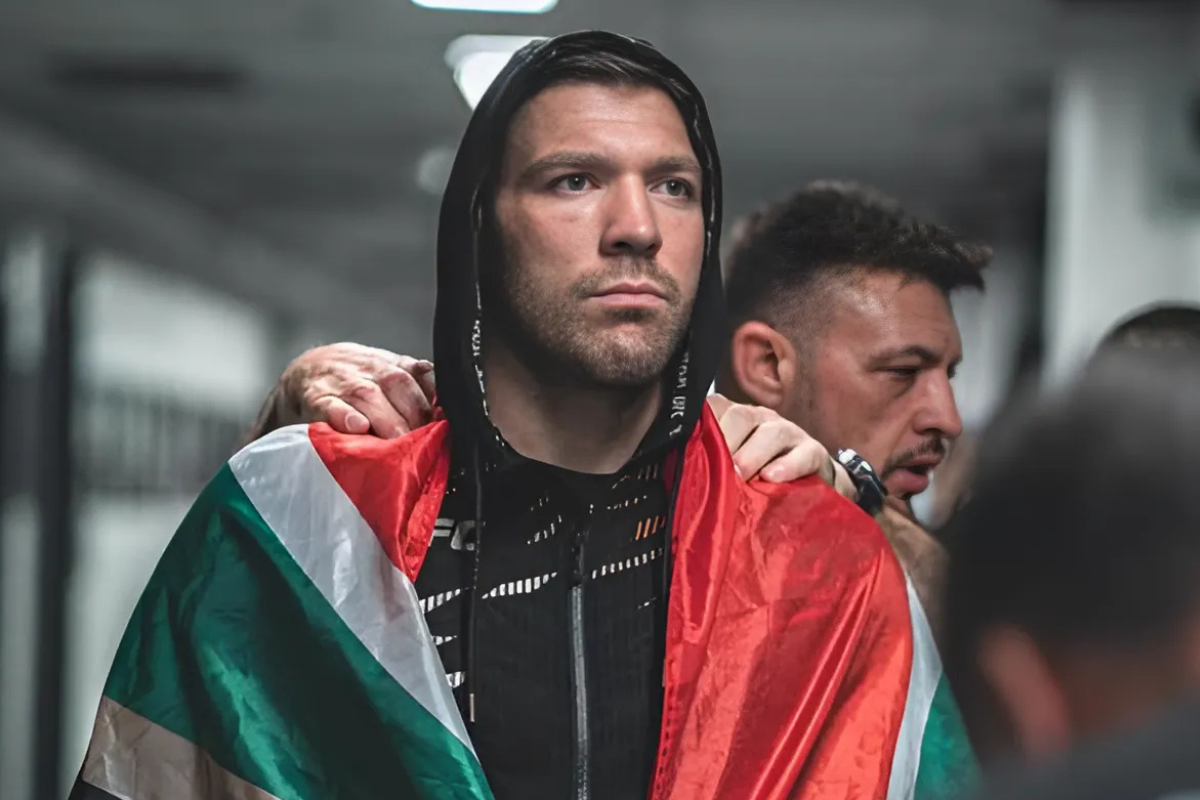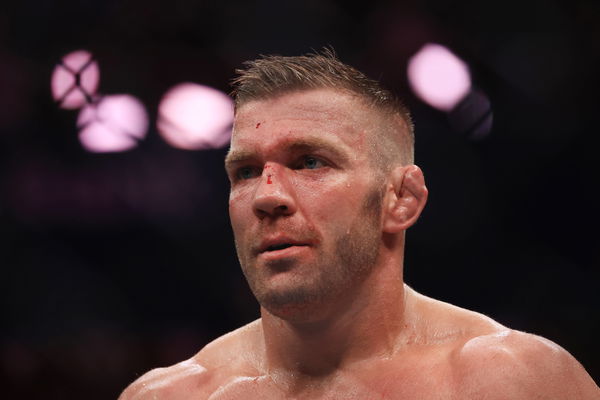

The UFC’s expansion into Africa is widely anticipated as one of the sport’s next major frontiers. After years of speculation, UFC management stated that organizing an event on the continent is a “definite” target for 2025, driven largely by the rise of African-born fighters like Dricus Du Plessis, the first South-African UFC middleweight champion.
Watch What’s Trending Now!
Along with pioneers like Israel Adesanya, Kamaru Usman, and Francis Ngannou, Du Plessis generated a surge of excitement and confidence for UFC Africa. But at UFC 319 on August 16, 2025, Khamzat Chimaev dominated Du Plessis for five rounds to win the title in one of the UFC’s most lopsided title fights. So now, with ‘Stillknocks’ no longer champion, the UFC’s South African debut suddenly looks far less secure. But why? Well, here are the reasons.
ADVERTISEMENT
Africa is left without a UFC champion
Dricus Du Plessis’s reign was a breakthrough for African MMA. After defeating Sean Strickland for the middleweight title at UFC 297 and defending it against Israel Adesanya and Strickland again, he became South Africa’s biggest combat sports hero. His championship status provided fans in the region with a local hero, as well as UFC executives with a clear figurehead to headline an African event.
ADVERTISEMENT
That presence is now gone. For the first time in years, Africa lacks a UFC champion after Du Plessis was defeated by Chimaev. Historically, the UFC has relied largely on regional champions to generate interest in new territories, like Conor McGregor in Ireland and Zhang Weili in China. Without a titleholder representing Africa, the promotion will have a more difficult time convincing broadcasters, sponsors, and casual fans that UFC Africa is worth the investment.
View this post on Instagram
ADVERTISEMENT
‘Stillknocks’ remains a top contender and fan favorite, but the lack of a current African champion weakens momentum at a time when the UFC intended to capitalize on it. For South Africa, losing its poster boy as champion renders the proposed 2025 event significantly less marketable.
PFL’s weak local representation has already been called out
ADVERTISEMENT
The UFC isn’t the only promotion eyeing Africa. The Professional Fighters League (PFL) held events in Cape Town and Johannesburg earlier this year, but the execution drew much criticism. Francis Ngannou, a former UFC champion and chairman of PFL Africa, criticized the cards for overlooking African talent in favor of international fighters. Local competitors were confined to the prelims, while the headliners lacked a substantial African presence.
Ngannou expressed dissatisfaction bluntly as he said, “I wasn’t very okay with the first PFL Africa event seeming to be like an undercard… It’s not about the money; it’s about the direction, about representing Africa in the right way.” His absence at both events, coupled with his apparent frustration, raised questions about the league’s legitimacy in Africa.
ADVERTISEMENT
This misstep exemplifies what occurs when events fail to feature regional stars front and center: fans disengage. In contrast, the UFC had an edge since Du Plessis was a defending champion who could headline a South African event with true pride. With his title gone, the UFC risks slipping into the same trap as the PFL: providing a show that feels more like an imported product than a historic African showcase.
Dricus Du Plessis previously warned the UFC about their delays
Even before UFC 319, Dricus Du Plessis expressed dissatisfaction with the promotion’s delayed progress toward delivering an African event. Despite repeated promises, the UFC has struggled to finalize logistics, citing challenges such as South Africa’s absence of indoor stadiums with retractable roofs, a significant barrier for an organization unwilling to risk weather-related disruptions in outdoor venues.
ADVERTISEMENT
In early 2025, DDP told ESPN, “Going on promises is not going to get us anywhere, but I speak to the Minister of Sports in South Africa, and he’s speaking to the UFC. It’s going to happen—I just hope that it’s sooner rather than later.” Bringing the UFC to Africa was both a personal and professional goal for him. Now that Du Plessis is no longer champion, the UFC may be less inclined to overcome those logistical barriers.

Imago
UFC 312 SYDNEY, Dricus Du Plessis of South Africa looks on after retaining his middleweight title against Sean Strickland of United States during the UFC 312 event at Qudos Bank Arena in Sydney, Sunday, February 9, 2025. ACHTUNG: NUR REDAKTIONELLE NUTZUNG, KEINE ARCHIVIERUNG UND KEINE BUCHNUTZUNG SYDNEY NEW SOUTH WALES AUSTRALIA PUBLICATIONxNOTxINxAUSxNZLxPNGxFIJxVANxSOLxTGA Copyright: xMARKxEVANSx 20250209151434536697
Without his belt to highlight the event’s significance, UFC Africa risks falling farther down the promotion’s priority list—another unfulfilled promise that risks alienating the devoted fans Du Plessis helped establish. Dricus Du Plessis’ defeat at UFC 319 was more than simply a title change; it deprived the UFC of its most prized narrative for entering Africa.
ADVERTISEMENT
Without a reigning champion from the continent, the South African event loses its anchor star, making the UFC vulnerable to the same flaws that have already harmed the PFL’s African expansion. When combined with existing logistical challenges, the timing could not be worse. UFC Africa is still viable in 2025, but unless Du Plessis rebounds or another African star emerges quickly, the long-awaited debut could be at serious risk.
ADVERTISEMENT
ADVERTISEMENT
ADVERTISEMENT